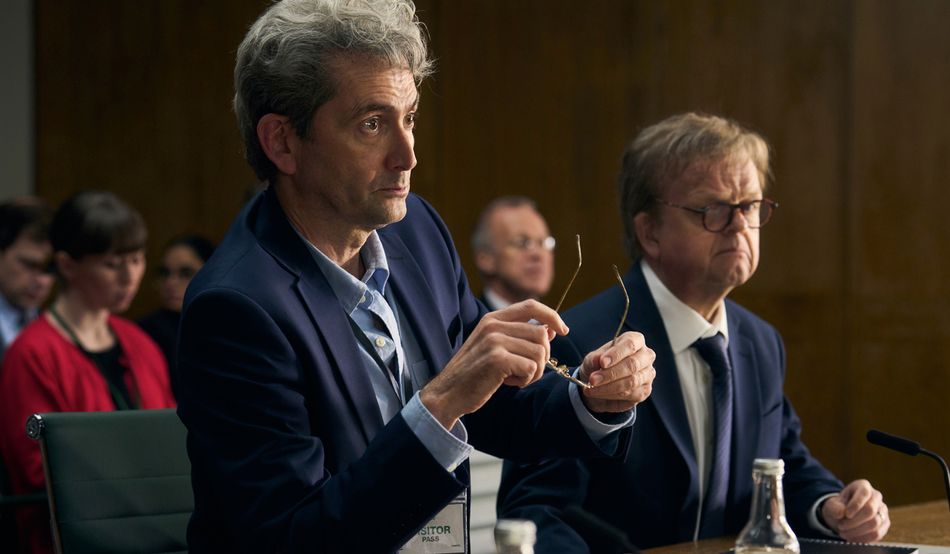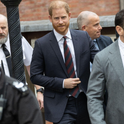RIP Robert Redford. Among the many reasons to have adored him is the sheer number of people who were drawn to journalism by seeing how devastatingly attractive and powerful an average beat reporter could be.
And it wasn’t just Redford starring in All the President’s Men. Dustin Hoffman, too. And the growling, stunningly charismatic Jason Robards as Ben Bradlee, the unflinching Washington Post chief who brought down Nixon. Who wouldn’t want a life in newspapering after seeing that?
You remember some of the glorious lines scripted by William Goldman. Bradlee: “I can’t do the reporting for my reporters, which means I have to trust them. And I hate trusting anybody. Run that baby!”
Or that moment when someone has the temerity to ask Bradlee what would happen if his boys got it wrong.
“Then it’s our asses.”
The 1976 Watergate film was about journalists as the good guys. Reporters (in real life, Bob Woodward and Carl Bernstein) forging contacts in underground car parks; wearing out shoe leather; hitting the phones; following their gut instinct; double-checking and double-sourcing every single fact.
I watched the film just as I, myself, was deciding on a career choice after university, and I was certainly one of those beguiled by the vision of righteous crusaders rolling up their sleeves to target the corruption of power.
Fast forward nearly 50 years and I’ll be settling down in front of the telly next Wednesday to watch another editor targeting the corruption of power, this time in The Hack. Only this time the editor is me—and the corrupted power is the press itself.
The great Toby Jones, who plays me, is no Jason Robards, but then I was no Ben Bradlee. Only in my dreams would I bellow “Run that baby!” at a cowering newsroom. My style, if you can call it that, was rather more muted, and Toby very skilfully avoids the screen clichés of rampaging editorial tyrants. You would not pick him to play Piers Morgan.
The other thing that distinguishes The Hack from the Watergate books and films is that the corruption of power was not political, but journalistic. This was Nick Davies (brilliantly captured by David Tennant) turning on his own profession. A great reporter rooting out something rotten in his own backyard.
You may remember the bare bones of what happened. A reporter on the News of the World had been caught intercepting the voicemails of Prince William. He went to jail. Andy Coulson, the editor, resigned. It was, we were told, one rotten apple. End of story.
And then, some three years later, Nick revealed that Murdoch’s UK company had shelled out the best part of £1m to buy off a second public figure who found his phone messages had been hacked. It seemed likely that there had been thousands of victims. In other words, the biggest private news company in the world was—at board level—covering up rampant criminality.
If that had been a corrupt bank or big pharma company, Fleet Street, along with the rest of civil society, would have joined in the chase. “The police must investigate, executives must go to jail, MPs must demand regulation and accountability, the victims must receive justice!” All that.
But this was a corrupt newspaper company—and not just any newspaper company, but the biggest, baddest beast of them all. And so, instead of outcry, there was silence. The cops shut up shop. The regulator blamed the Guardian, not the News of the World. MPs by and large zipped it. And most—not all—journalists pretended it wasn’t happening.
If you thought Britain was a country of democratic checks and balances, think again.
That’s what Jack Thorne has written about with The Hack. A cloak of impunity granted to Rupert Murdoch because he had the power to make or break people. He could dig up dirt, bring the mighty crashing down and swing elections (or so it was widely believed). Let’s be honest: people were afraid of him. With cause.
The Hack cleverly interweaves the scandal of phone-hacking with the still-unsolved murder of Daniel Morgan, a private detective who moved in the same circles as the criminals working in the shadows for Murdoch’s flagship tabloid. A noble profession—the calling celebrated in All the President’s Men—was rolling around in the dirt with some of the vilest underworld figures In London. But it was considered bad form to draw attention to the fact.
Thanks to one reporter’s work we now have a much better sense of the magnitude of the scandal, though we may never know the whole truth. Murdoch has forked out more than a billion pounds in damages and costs to the hundreds of victims who eventually sued; and it’s subsequently emerged that Mirror Group Newspapers was also up to its neck in similar skullduggery.
But much of the evidence has—how can one put this politely?—disappeared. More than 30 million emails vanished into thin air around the time the police finally realised they had to be seen to do something. Entire filing cabinets of evidence went walkies. The CPS, however, found that there was no evidence that emails had been deleted to obstruct the police investigation.
Although a number of people have claimed that the sister newsroom at the Sun was up to the same tricks as its colleagues in the News of the World, every single legal case was settled out of court and the Sun has never been found liable for phone hacking.
So, no, we will probably never learn the true extent of what was happening. A profession devoted to disclosure would rather a cloak of darkness settle over this whole unhappy episode. Time to move on.
So, do not expect a warm bath of glowing reviews for The Hack. Toby Jones managed to parachute the Post Office scandal—in a drama made by the same production company—onto every front page. But this particular story about the corruption of power is a bit too close to home. And the Murdoch family, along with their advisers, have long memories.
In America today Donald Trump is putting the squeeze on what’s left of independent news media. The fabled Washington Post which brought down Nixon is now being run by Murdoch’s clean-up guy. The paper was too feeble to dare endorse Kamala Harris and drove out a cartoonist who lampooned the publisher.
ABC and CBS have already buckled. Trump is suing the Wall Street Journal for $10bn and the New York Times for $15bn. And now Murdoch’s Fox News will henceforth be in the hands of Lachlan Murdoch, who was at the helm when the channel knowingly broadcast lies about the 2020 presidential election. That’s likely to cost the company the thick end of $2bn—though of course the evidence will never be aired in court.
“Democracy dies in darkness.” That used to be the Washington Post’s marketing slogan. If it is still using it today we can only call it chutzpah.
But please do watch The Hack. It shows journalism at its worst—but also at its best. It shows the corruption of power—but also how the craft of reporting can still bring about change. Perhaps David Tennant can do what Robert Redford did nearly 50 years ago, and inspire future generations of young people to shine light where it’s needed.
Run that baby!













